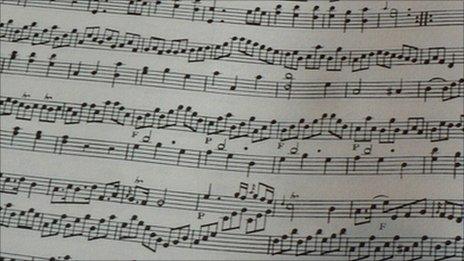Music therapy: Writing music brought the joy back after amputation
- Published
Tim and Lucie, who started making music online during lockdown, now meet regularly in a studio
A man left with serious injuries after trying to take his life has said a music therapist helped give him a reason to live again.
Tim, 55, from Cardiff suffered brain injuries in 2020.
He is now partially sighted, his left arm was amputated just below his shoulder and he is now a full time wheelchair user.
While in a rehabilitation unit he was introduced to a music therapist and his life changed.
Tim said he was nervous about working with Lucie Phillips, from the music therapy charity Nordoff Robbins, but soon rediscovered his love of music.
'Losing my arm, being a guitar player was horrendous'
"I didn't know what to think, but once I'd tried it out - and Lucie was so good with me, it was easy," he said.
"I was buzzing. Every week I'd be thinking, come on Wednesday, come on Wednesday, because I couldn't wait to do it again.
"It has brought a bit of joy, yeah because losing my arm, being a guitar player was horrendous, it's horrendous to be honest with you, I don't know how to describe it, but we move on we live on."
Covid restrictions meant the two could not meet in person so they worked online to create music.
"It took a few weeks to write, little by little, but it was really good, Lucie was really patient with me," he added.
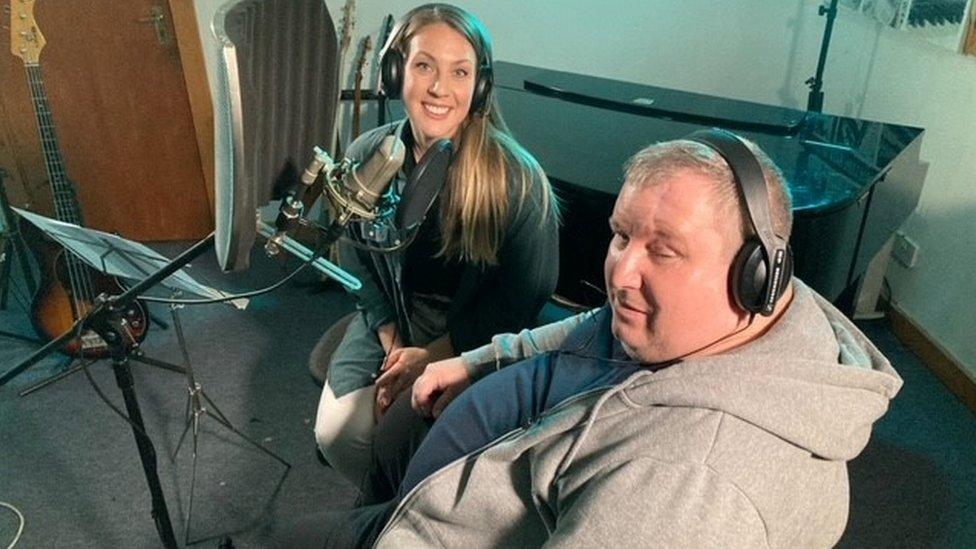
Tim and Lucie said they both needed to be patient while writing together
On Wednesday the pair recorded two songs written and composed by Tim called Computer Music and Pretty in Pink.
He sings and uses a computer.
The tracks were recorded at the Shabbey Road recording studio in Caerphilly.
"There's no better feeling than creating music you know. I realised how much I missed it," said Tim.
Lucie remembers the first time she connected with Tim online.
"He was in a really difficult place when I first met him," she said.
"He was on a neuro rehabilitation ward and he'd been referred onto music therapy.
"He was feeling pretty low and they knew that he was a musician and wondered if music therapy might be able to help.
"As music therapists we're there to bring the wonders of music to people who aren't able to access music and use it for themselves when they're going through particular traumas in their lives."
Roy Orbison, The Beatles, Black Sabbath
Lucie said Tim has "an amazingly eclectic taste in music".
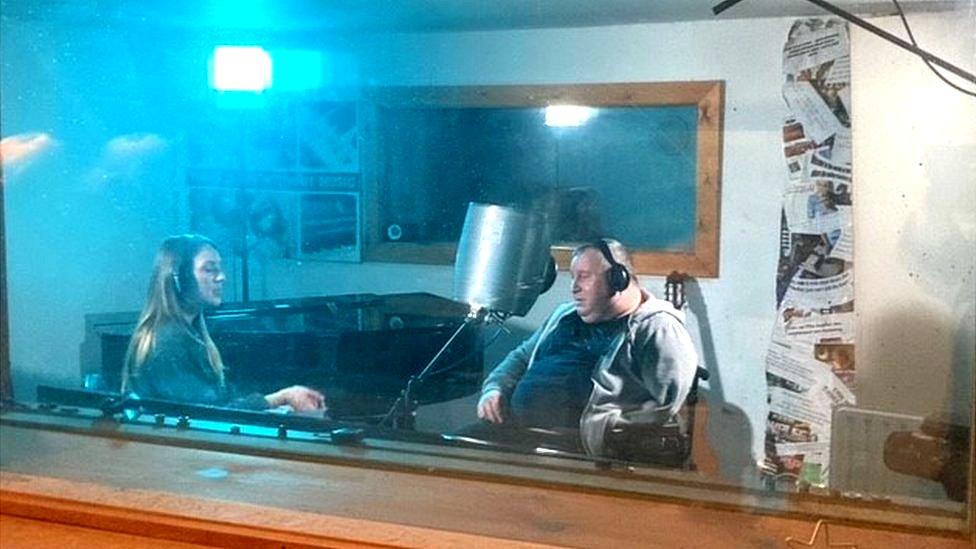
Tim and Lucie recorded his songs at the Shabbey Road recording studio in Caerphilly
"We got to know each other through the songs Tim knows and loves from Roy Orbison, The Beatles, Black Sabbath and many more and many songs," she said.
"Then eventually we got onto song writing.
"We were using Zoom and were having to be incredibly patient with each other.
"Both being musicians we knew how frustrating it was not to be able to make music exactly at the same time. It's not easy, so hats off to Tim for persevering."
'A more confident Tim'
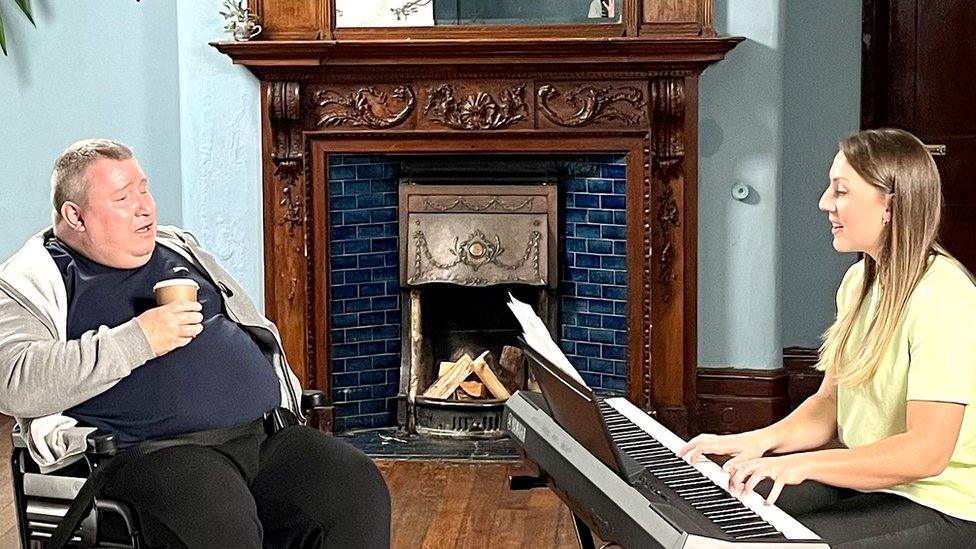
Music therapy brought joy back into Tim's life
This week was the first time Tim and Lucie had met in person.
Lucie said Tim is very different to the man she first talked to in the rehabilitation unit.
"I think Tim is a more confident Tim now," she said.
"I think Tim has processed what has happened to him and I think he has perhaps made some peace with that.
"It has been quite a nerve wracking journey meeting up and rehearsing and then recording… especially after not working together for such a long time, but Tim has absolutely risen to the challenge."
If you, or someone you know, have been affected by issues raised in this story, click on the BBC Action Line for resources which may help.

CELEBRATING WELSH POP: A decade-by-decade romp through the TV archives
MUSIC NATION WITH HUW STEPHENS: How did Wales become known as The Land of Song?

- Published12 October 2022
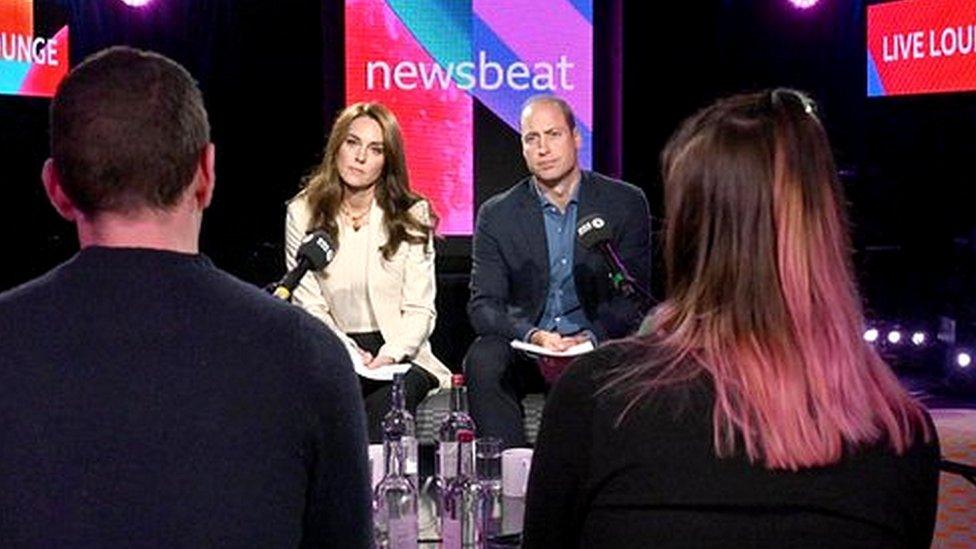
- Published15 October 2022
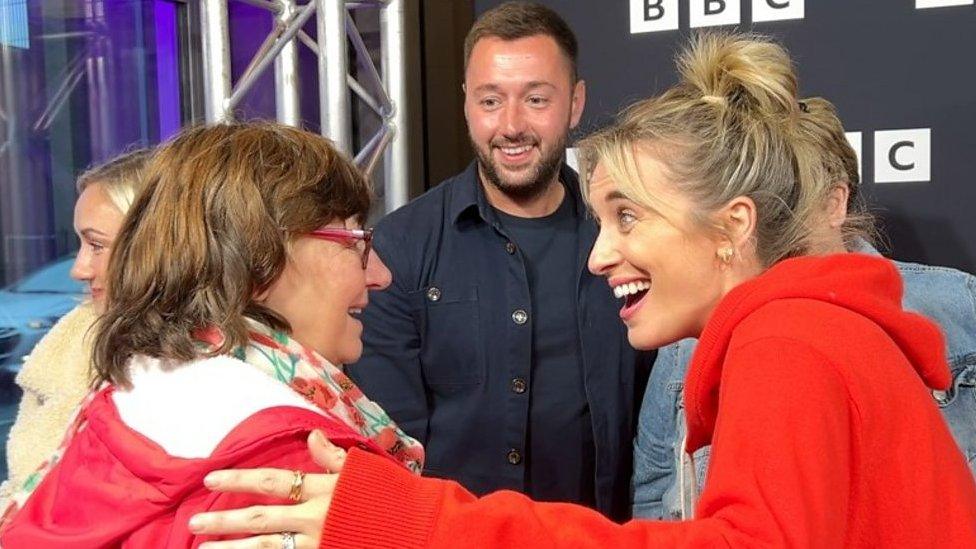
- Published1 August 2011
